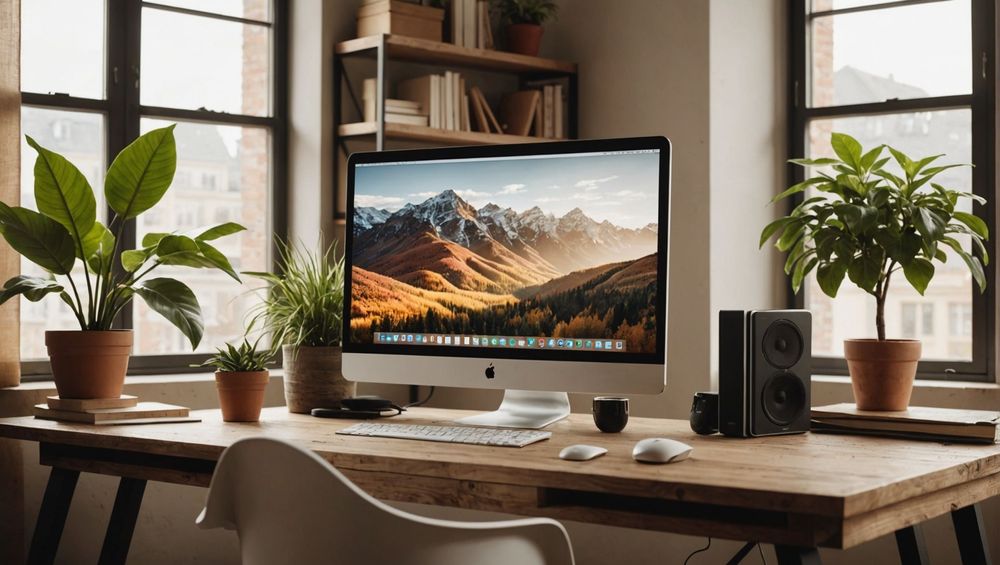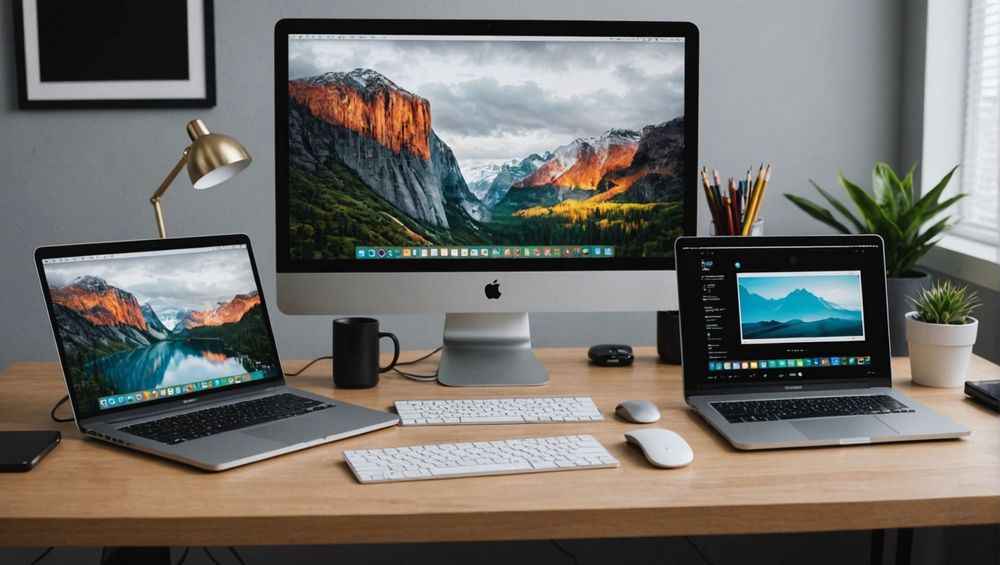Choosing between a desktop and a laptop can be a tough decision, heavily reliant on your lifestyle and computing needs. Desktops offer more power and customization but lack portability, while laptops blend convenience with adequate performance. This article will delve into various aspects of each option to help you make an informed decision tailored to your unique requirements.
Understanding the Differences

Before diving into the pros and cons of desktops and laptops, it’s essential to understand their fundamental differences. Desktops are generally composed of multiple separate components: a monitor, CPU unit, keyboard, and mouse, providing more flexibility regarding upgrades. Laptops, on the other hand, are compact units with all parts integrated for portability, but this can limit their upgrade potential. Here are some key distinguishing features:
- Portability: Laptops are designed for mobility, making them ideal for on-the-go users like students or remote workers.
- Performance: Desktops typically offer superior performance due to better cooling systems and more powerful components.
- Size: Desktops often occupy more space, while laptops are compact and easy to store.
- Price: While both devices can vary in price, laptops typically offer more affordable options at entry levels.
- Battery life: Laptops run on batteries, granting freedom from power outlets, unlike desktops that require continuous power.
The Benefits of Desktops

Desktops stand out for several reasons, particularly in terms of performance and user experience. Firstly, they typically have larger screens, providing a more immersive experience for tasks such as gaming or graphic design. Secondly, their components can be easily replaced or upgraded, allowing users to customize their systems based on evolving needs. This is especially beneficial for tech enthusiasts who wish to remain up-to-date with the latest technology. Additionally, desktops often come with better thermal management, reducing the chances of overheating during intensive tasks.
Moreover, desktops tend to have a greater variety of ports, making them more versatile for connecting external devices such as printers, additional monitors, and external storage. Importantly, they also offer a better ergonomic experience, with full-sized keyboards and adjustable screen heights leading to more comfortable long-term use. Finally, for activities like multitasking or running complex software, desktops provide smoother operation due to their more powerful CPUs and GPUs.
The Advantages of Laptops
On the flip side, laptops offer a unique set of advantages that cater to a different audience. The most substantial advantage is undoubtedly their portability; you can work from virtually anywhere, which is perfect for traveling professionals or students. Additionally, laptops are designed for energy efficiency, generally leading to lower electricity costs, especially for users who spend significant time on their computers.
Furthermore, with built-in web cameras and microphones, laptops are often better suited for virtual meetings or online classes. This all-in-one design creates a streamlined setup, reducing clutter associated with multiple peripherals. Many modern laptops come equipped with robust features such as long battery life and lightweight design, making them perfect for users who require functionality along with ease of use.
Which One Is Right for You?
The decision ultimately hinges on your individual needs and lifestyle. If you prioritize performance and are willing to commit space to a setup, a desktop is likely the better option for you. Gamers, designers, and power users will benefit most from the enhanced capabilities a desktop can offer.
Conversely, if you require flexibility and plan to work in various locations, a laptop will provide the mobility you need while remaining efficient for everyday tasks. It’s vital to assess what you’ll most often use your device for before making your decision. Consider factors such as software requirements, your work environment, and how often you plan to travel.
Conclusion
Ultimately, both desktops and laptops have their place in today’s technological landscape. Desktops shine in customization, performance, and comfort, while laptops excel in portability and convenience. Evaluating your specific needs and lifestyle will guide you to the best option for you. For the best experience, make sure to balance the pros and cons as well as consider your budget. Whether you choose a desktop or a laptop, either device can serve as a powerful tool in your digital toolkit.
FAQs
1. Can I upgrade my laptop like I can a desktop?
Generally, laptops have limited upgrade options compared to desktops. Most upgrades are usually restricted to RAM and storage, while components like the CPU and GPU are often soldered on.
2. Which device is better for gaming?
Desktops usually outperform laptops for gaming due to their powerful components, superior cooling systems, and the ability to upgrade graphics cards easily.
3. Are laptops more expensive than desktops?
Not necessarily. Laptops can range in price and may offer more affordable entry-level options; however, high-performance laptops may be more expensive than their desktop counterparts.
4. Is battery life a crucial factor in buying a laptop?
Yes, if you plan to use the laptop away from power outlets frequently, battery life becomes a crucial factor in your purchasing decision.
5. Should I prioritize portability or performance?
This depends on how you intend to use the device. If you need to work remotely or travel often, prioritize portability. If you focus on performance-intensive tasks like video editing or gaming, prioritize a desktop.



